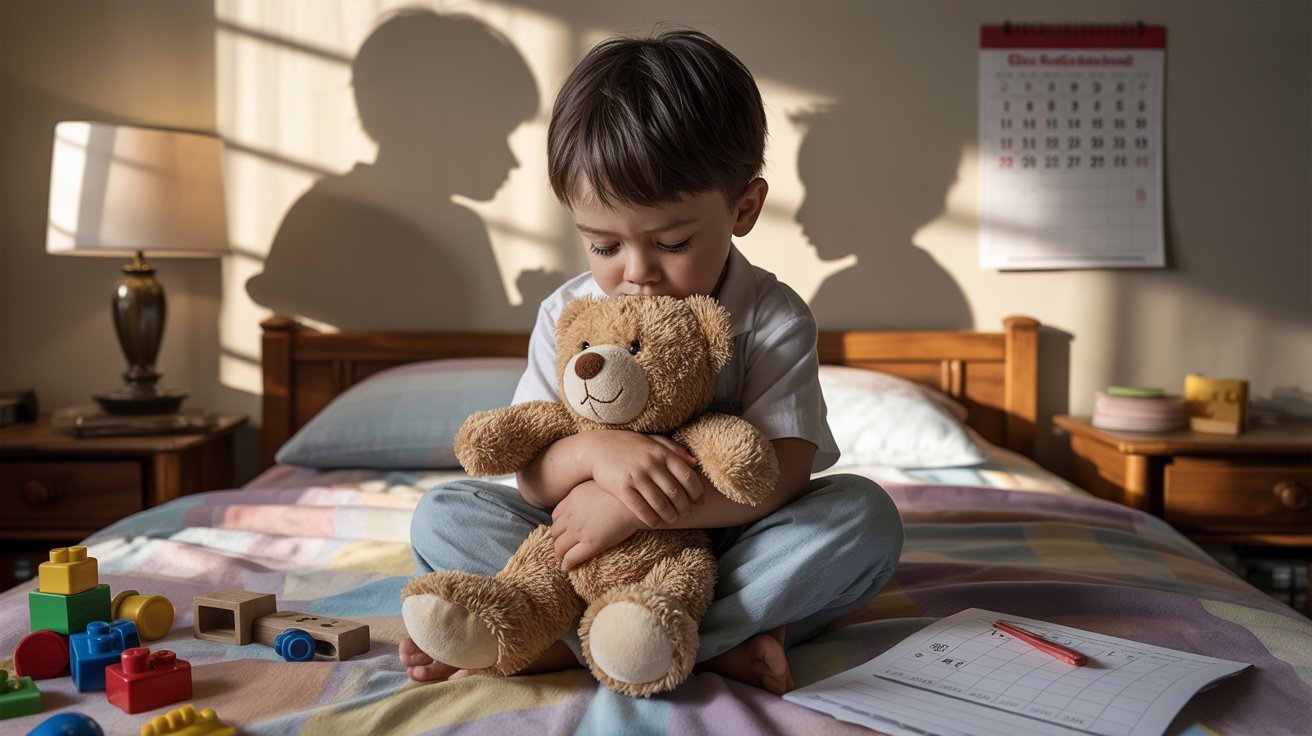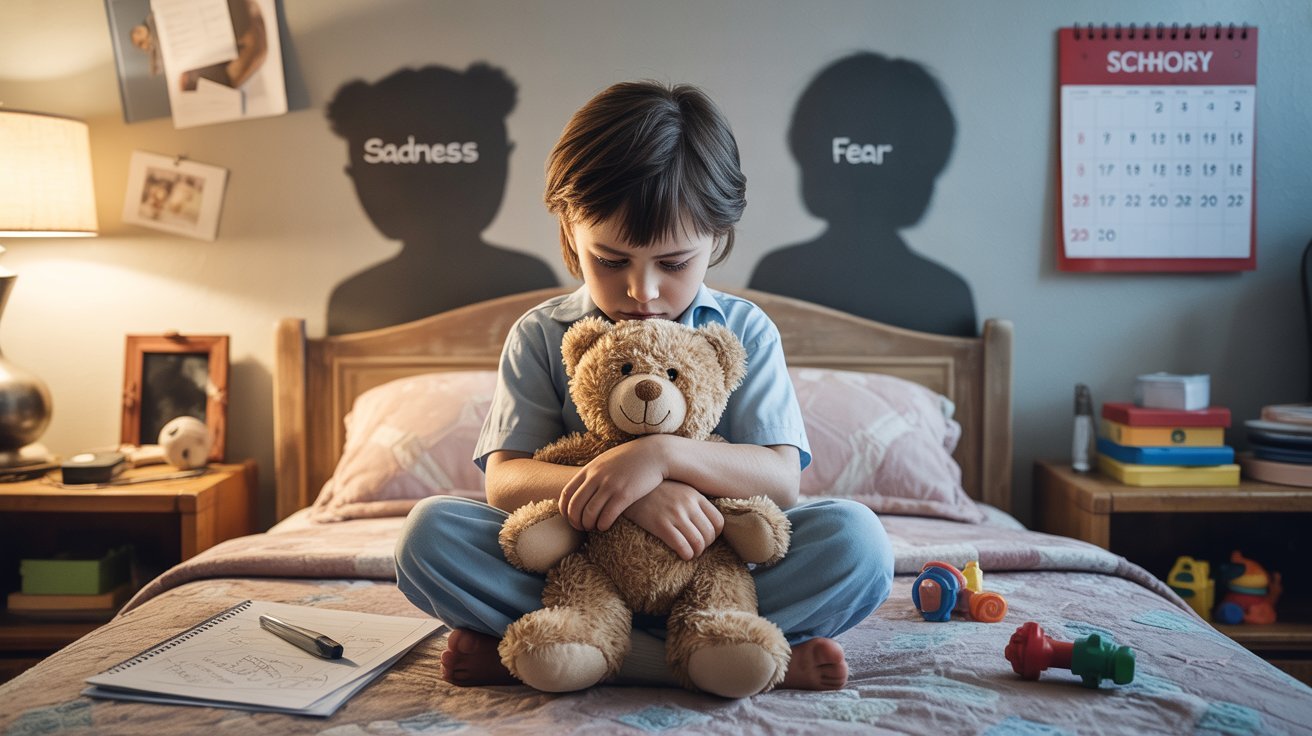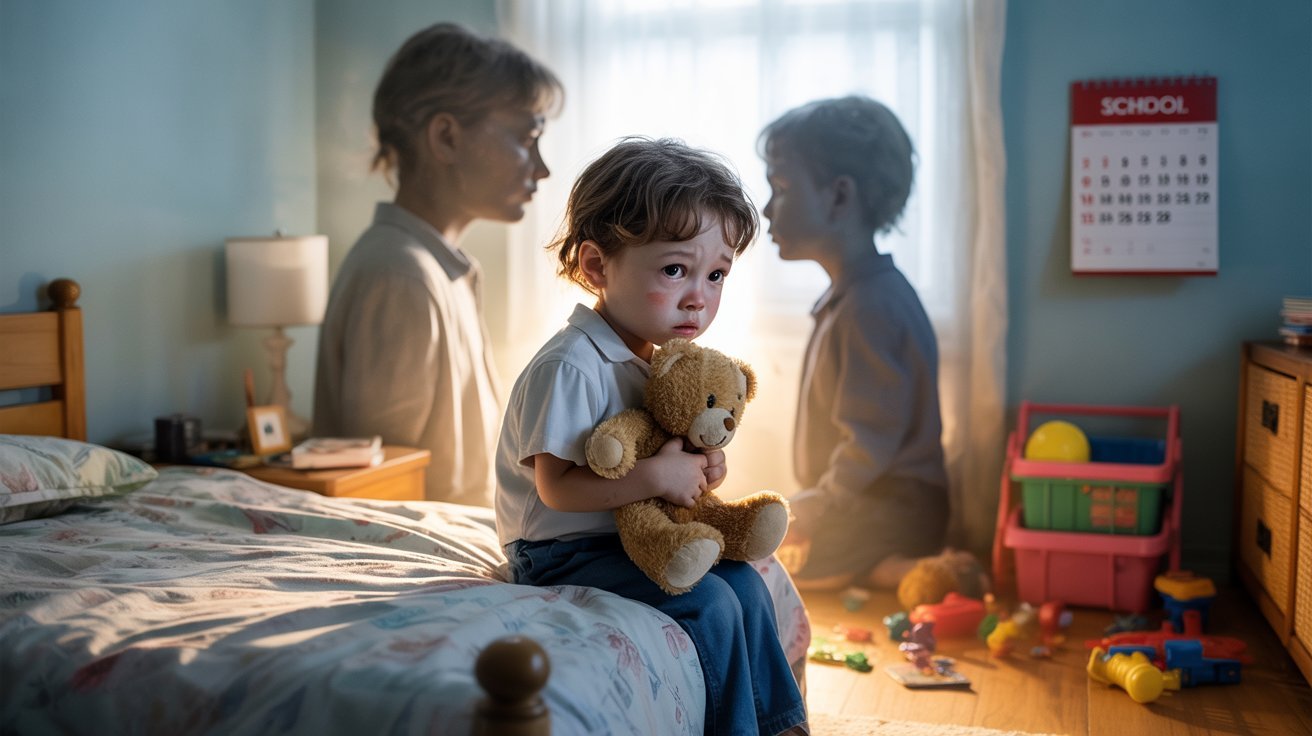Children may not always say when they are feeling upset or overwhelmed. Instead, they often show signs through their behavior, mood, or actions. Recognizing these signs early can help parents and caregivers provide the right support.
Signs like changes in sleep, appetite, sudden mood swings, or withdrawal from friends can mean a child is struggling emotionally. These behaviors can be subtle or more obvious, but they point to a child needing attention and understanding.
Knowing what to look for helps adults respond in a caring and effective way. Paying attention to these signals can make a big difference in a child’s well-being.
Understanding Emotional Struggles in Children
Emotional struggles in children can show up in many ways. These difficulties often come from different causes and depend on the child’s age and stage of development.
What Is Emotional Struggle?
Emotional struggle means a child has trouble managing feelings like sadness, anger, or fear. It can make them act differently than usual. For example, they might cry more, seem withdrawn, or have sudden mood swings.
These struggles are not just bad days. They often last for weeks or months and affect how the child feels and behaves at home, school, or with friends. Emotional struggles can sometimes lead to anxiety or depression if not addressed early.

Common Causes of Emotional Challenges
Children can face emotional problems due to many reasons. Stress from family issues, such as divorce or loss, is a common cause. Bullying or problems with friends can also trigger emotional pain.
Other causes include changes at school, pressure to perform well, or health problems. Sometimes a child may have a hard time putting feelings into words, which can make emotions seem overwhelming. Recognizing these causes helps adults support the child better.
Developmental Considerations
Children’s emotional struggles can look different depending on their age. Young children might show sadness by being clingy or upset during separation. Older kids may express feelings through anger or withdrawing from social activities.
As children grow, they learn to handle emotions better, but this skill develops over time. Some struggles are part of normal growth, but persistent or severe issues need attention. Understanding what is typical for each age helps adults know when to step in.
Behavioral Signs Your Child Is Struggling Emotionally
A child’s behavior often changes when they have emotional struggles. These changes can show up in mood shifts, social interactions, school work, and interests. Paying attention to these signs can help identify when a child needs support.
Increased Irritability or Anger
A child who is emotionally struggling may become more irritable or angry than usual. This can mean quick mood swings, frequent outbursts, or snapping at family and friends over small issues. They might be more frustrated by simple tasks or appear easily annoyed.
These changes can last for days or weeks, not just a bad day. The child might also have trouble calming down after getting upset. This kind of irritability can affect relationships at home and school.
Withdrawal from Family or Friends
Children dealing with emotional problems often pull away from those they are close to. They might stop sharing their feelings or avoid spending time with family and friends. This withdrawal can look like refusing to join group activities or isolating themselves in their room.
They may also stop talking about what is going on in their life. When a child suddenly changes their social habits, it can be a sign they are struggling inside and need help.

Changes in Academic Performance
Emotional struggles often affect a child’s school work. They might have trouble concentrating on tasks, forget assignments, or perform worse on tests. Sometimes, a child who usually does well may start missing homework or skip classes.
These changes may happen suddenly and without clear reasons. A drop in grades or lack of interest in schoolwork can point to emotional issues that interfere with learning.
Loss of Interest in Activities
A child who once enjoyed hobbies, sports, or clubs may lose interest when they are struggling emotionally. They might stop playing sports, avoid favorite games, or refuse to join social outings.
This loss of interest often comes with low energy or sadness. When a child consistently avoids activities they used to enjoy, it can be a strong signal that something is wrong emotionally.
Physical and Emotional Indicators
A child struggling emotionally may show clear signs in both their body and feelings. These signs often overlap and impact daily life, making it important to watch for specific changes.
Frequent Complaints of Physical Ailments
Children dealing with emotional struggles often report aches and pains without a clear medical cause. Common complaints include headaches, stomachaches, and muscle pain. These physical symptoms can be a response to stress or anxiety.
Parents should note if these complaints happen often or increase during school days or before social events. If a doctor finds no physical issue, emotional difficulty may be the cause. This type of ongoing discomfort can make it harder for a child to focus or enjoy activities.
Sleep Disturbances
Changes in sleep patterns can signal emotional problems in children. This might include trouble falling asleep, waking up often, nightmares, or sleeping too much. Poor sleep affects mood, attention, and overall energy.
If a child suddenly resists bedtime or seems tired throughout the day, it could be related to emotional stress. Consistent bad sleep can worsen feelings of sadness or irritability, so tracking sleep habits is important.

Heightened Sensitivity or Tearfulness
A child who becomes easily upset or cries more than usual may be struggling inside. They might react strongly to small problems, show frustration, or withdraw from others. This increased sensitivity can point to feelings of insecurity or worry.
Parents should watch for frequent crying spells or quick mood shifts. A child showing this behavior may need support to manage emotions and feel safer expressing how they feel.
Key signs to watch:
- Frequent unexplained aches
- Trouble sleeping or unusual sleep patterns
- Strong emotional reactions or frequent crying
Communication Red Flags
Children who are struggling emotionally often show changes in how they communicate. These signs can be subtle but are important to notice early.
Expressing Feelings of Hopelessness
A child might say things like “Nothing will get better” or “I don’t want to try anymore.” These statements should be taken seriously. They show the child feels stuck or overwhelmed.
The child may also stop sharing thoughts or stop talking about future plans. This shift can mean they feel hopeless. Pay attention if these feelings come up often or last for weeks.
It helps to write down what the child says and when, so adults can see patterns and get help early.
Difficulty Talking About Emotions
Some children struggle to say how they feel. They might avoid tough topics or give one-word answers. This can mean they feel scared, confused, or unsure how to explain their feelings.
They may use actions, like withdrawing from friends or getting angry quickly, instead of words. Adults should ask simple questions and listen without judging. This builds trust and makes it safer for the child to open up.
Encouraging drawing or writing about feelings can also help children express emotions they cannot say out loud.
When to Seek Professional Help
Knowing when to get outside help is important. Some signs are clear, such as ongoing issues that don’t improve. Parents also need to know where to find support and guidance for their child’s emotional struggles.
Identifying Persistent or Severe Symptoms
If a child shows strong emotions that last more than two weeks, help should be considered. Signs include constant sadness, anger, or fear that affects daily life. Other red flags are trouble sleeping, changes in appetite, or withdrawing from friends and family.
Behaviors like self-harm, talk of suicide, or extreme anxiety need immediate attention. If the child cannot handle normal activities like school or chores, professional support is necessary. It is important not to wait and assume these feelings will go away on their own.
Resources for Parents and Caregivers
Parents should start by talking to the child’s doctor or school counselor. These professionals can recommend therapists or support groups. Many communities have mental health clinics or hotlines for urgent help.
Online resources like government health websites and nonprofit organizations offer useful guides. Parents can also join forums and parent groups for advice. Keeping a record of symptoms and behaviors will help professionals provide better care.














